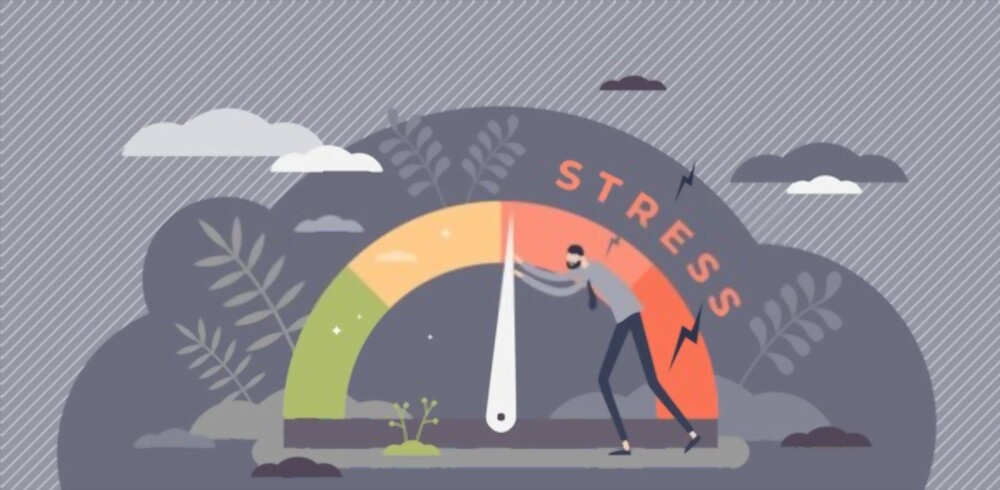
The stress response, also known as “fight or flight,” is a natural, biological reaction to sudden threats. The ability to adapt to violent attacks and moments of danger is hardwired into our DNA and absolutely necessary to our survival.
While the stress response is perfectly healthy over the short-term, chronic stress can damage our well-being and contribute to disease because of the chemical effects that occur.
What most don’t realize is that the body responds to an unpaid stack of bills on the kitchen table the same way as when a hungry bear is attacking us. The difference, however, is that balance is restored soon after we escape the bear. Still, the everyday stresses we endure, like deadlines, traffic jams, money pressures, and KIDS, are always present in one form or another.
We can’t eliminate stress unless we’re ready to abandon our relationships, ambitions, and modern life altogether.
We can, however, reverse the harmful effects of chronic stress by physically changing our chemical state.
Effects of the Stress Response
The fight or flight response is an unconscious set of reactions that result from physical, emotional, and chemical stress.
Pain, anxiety, worry, chemicals in food, poor nutrition, lack of sleep, lack of exercise, and even some prescription drugs, can all trigger the same survival mechanism in the body. When this happens, all growth and repair processes shut down in favor of those that provide life-saving protection.
The stress response looks like this:
- The immune system shuts down.
- Digestion ceases.
- Blood pressure rises.
- Heart rate increases.
- All senses are heightened.
- Serotonin drops.
- Cortisol increases.
- Cholesterol increases.
- Sugar stores are broken down for energy.
- Stress hormones are dumped into the bloodstream.
- Blood is diverted to organs and muscles.
- Increased sensitivity to pain.
Does this sound like a state in which you’d like to remain? But this is where most of us live because of constant low levels of stress.
A prolonged increase in cortisol causes weight gain, insulin resistance, type 2 diabetes, immune deficiencies, and osteoporosis. The constant presence of stress hormones in the blood inhibits factual learning, memory, and the ability to focus (ADD, anyone?).
A long-term combination of high adrenalin and low serotonin leads to depression, irritability, fatigue, insomnia, headaches, decreased sex drive, and more rapid aging. And I shouldn’t have to mention the dozens of illnesses that result from high sugar levels in the bloodstream.
An increased heart rate and blood pressure, along with increased blood lipids and blood sugar are heart disease and stroke just waiting to happen. Add a depressed immune system and the effects of cortisol, and we’ve made a connection to every major health issue in America.
Do you see why we must do something about the presence of chronic stress in our lives?
How to Reverse the Effects of Stress
The human body exists in one of two states:
- Growth – when our cells are healthy and in homeostasis (balance)
- Protection – when we are in fight or flight
A cell cannot be in growth and protection simultaneously. With this in mind, in order to reverse the harmful effects of stress, we have to go beyond the common advice of “sit down and take a deep breath,” and upend the chemical state of protection back to one of growth. You may be surprised to learn that this involves activity rather than relaxation.
The best ways to do that are these:
1. Exercise
This study reports that regular exercise, through the changes in chemistry and metabolism that occur, returns the body to a state of homeostasis, insulin sensitivity, and efficient energy usage.
Understand that exercise doesn’t have to be done in a gym. Just move your body every day. Play with your kids or grandkids, wrestle with them, play on the playground equipment with them, climb a tree, have running races, go on a hike, dance around your house. The possibilities are endless.
2. Have Fun
You can’t be stressed out while you’re laughing and doing something that makes you happy. This study suggests that laughter reduces stress and boosts immune health, and this one showed that it reduces cortisol levels and stress hormones. This is why engaging in our hobbies and making time for the things we enjoy are so important. It’s actually a necessity for wellness, so there is your excuse to go do something fun.
3. Have Sex
I can foresee a million men emailing this to their wives right now. Of course, you might not even have to go that far. The mere act of kissing was shown in this study review to decrease cortisol levels in couples who lip-locked for 15 minutes.
But if you want science, I’ll give you some science. This webpage not only cites the positive effects of sex on stress but lists an impressive collection of studies showing benefits from diminishing pain, improving fertility, and even combating cancer.
Like we needed any more encouragement.

